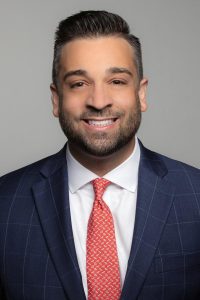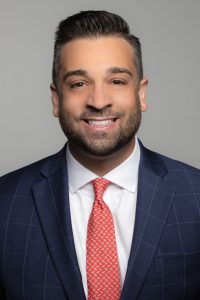By Michael Christodoulou

As we enter the holiday season, your life may well become busier. Still, you might want to take the time to consider some financial moves before we turn the calendar to 2025.
Here are a few suggestions:
Review your investment portfolio. As you look at your portfolio, ask these questions: Has its performance met my expectations this year? Does it still reflect my goals, risk tolerance and time horizon? Do I need to rebalance? You might find that working with a financial professional can help you answer these and other questions you may have about your investments.
Add to your 401(k) and HSA. If you can afford it, and your employer allows it, consider putting more money into your 401(k) before the year ends — including “catch-up” contributions if you’re 50 or older. You might also want to add to your health savings account (HSA) by the tax-filing deadline in April.
Use your FSA dollars. Unlike an HSA, a flexible spending account (FSA) works on a “use-it-or-lose-it” basis, meaning you lose any unspent funds at the end of the year. So, if you still have funds left in your account, try to use them up in 2024. (Employers may grant a 2½ month extension, so check with your human resources area to see if this is the case where you work.)
Contribute to a 529 plan. If you haven’t opened a 529 education savings plan for your children, think about doing so this year. With a 529 plan, your earnings can grow tax deferred, and your withdrawals are federally tax free when used for qualified education expenses — tuition, fees, books and so on. And if you invest in your own state’s 529 plan, you might be able to deduct your contributions from your state income tax or receive a state tax credit.
Build your emergency fund. It’s generally a good idea to keep up to six months’ worth of living expenses in an emergency fund, with the money held in a liquid, low-risk account. Without such a fund in place, you might be forced to dip into your retirement funds to pay for short-term needs, such as a major car or home repair.
Review your estate plans. If you’ve experienced any changes in your family situation this year, such as marriage, remarriage or the birth of a child, you may want to update your estate-planning documents to reflect your new situation. It’s also important to look at the beneficiary designations on your investment accounts, retirement plans, IRAs and insurance policies, as these designations can sometimes even supersede the instructions you’ve left in your will. And if you haven’t started estate planning, there’s no time like the present.
Take your RMDs. If you’re 73 or older, you will likely need to take withdrawals — called required minimum distributions, or RMDs — from some of your retirement accounts, such as your traditional IRA. If you don’t take these withdrawals each year, you could be subject to penalties.
These aren’t the only moves you can make, but they may prove helpful not only for 2024 but in the years to come.
Michael Christodoulou, ChFC®, AAMS®, CRPC®, CRPS® is a Financial Advisor for Edward Jones in Stony Brook, Member SIPC.
This article was written by Edward Jones for use by your local Edward Jones Financial Advisor.
















